Abstract
Incubation of peripheral blood or isolated lymphocytes of C57L/J mice with phytohemagglutinin stimulated the incorporation of thymidine into DNA of lymphocytes as they transformed into large lymphoblasts. DNA synthesis began after about 24 hr of incubation and reached a peak at 48 hours. The de-novo synthesis of sterols from acetate was stimulated much earlier, at 4 hr of incubation, and the rate reached a maximum at 24 hr, approximately at the time DNA synthesis began. Rates of incorporation of radioactivity from [14-C]acetate into fatty acids and into CO2 by phytohemagglutinin-treated blood were not significantly different from control values. Phytohemagglutinin stimulation of sterol synthesis could be abolished by the addition of certain oxygenated derivatives of cholesterol (e.g., 25-hydroxycholesterol and 20alpha-hydroxycholesterol) which specifically depress the activity of the regulatory enzyme in the sterol synthesis pathway, 3-hydroxy-3-methylglutaryl CoA reductase [mevalonate:NADP-nOXIDOREDUCTASE (CoA acylating); EC 1.1.1.34]. This treatment also abolished DNA synthesis and blastogenesis which otherwise followed the peak of sterol synthesis. Furthermore, DNA synthesis was repressed only if the inhibitor was added early enough to prevent sterol synthesis from reaching its usual maximum. When the compound was added after the rate of sterol synthesis had reached its maximum, DNA synthesis was not affected. These findings suggest that the synthesis of cholesterol is an essential prerequisite for successful initiation and completion of the cell cycle in lymphocytes after phytohemagglutinin activation.
Full text
PDF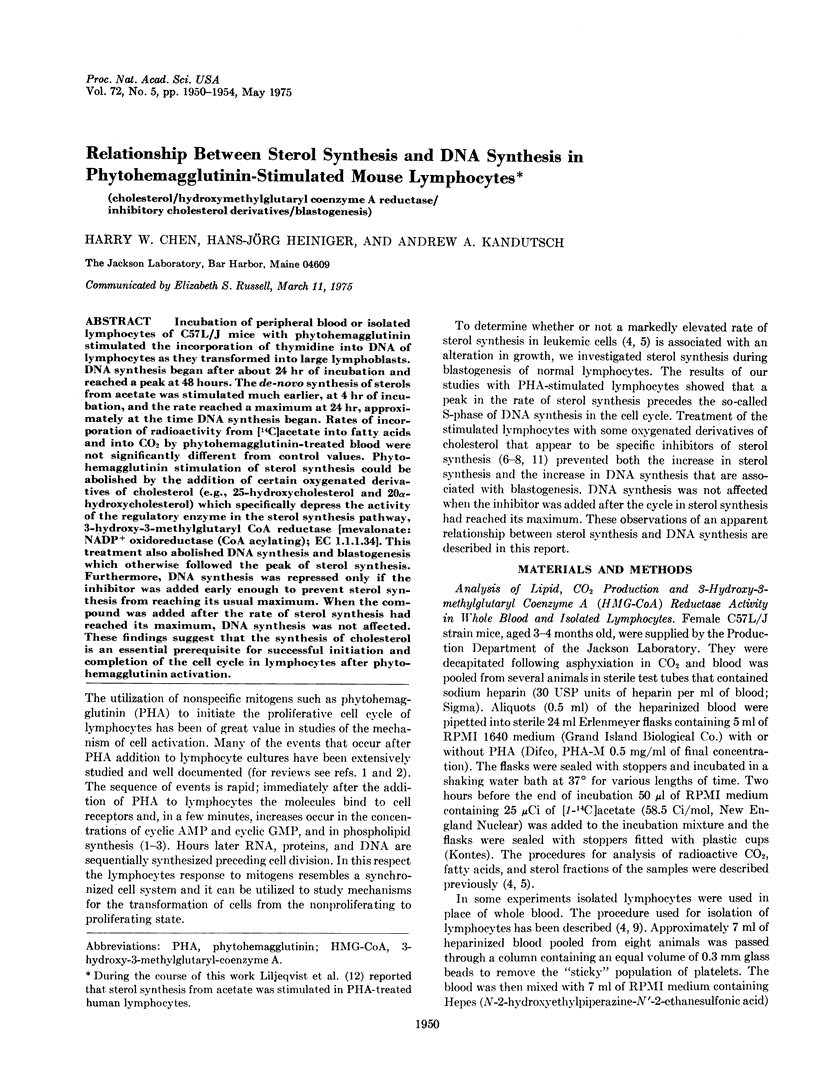
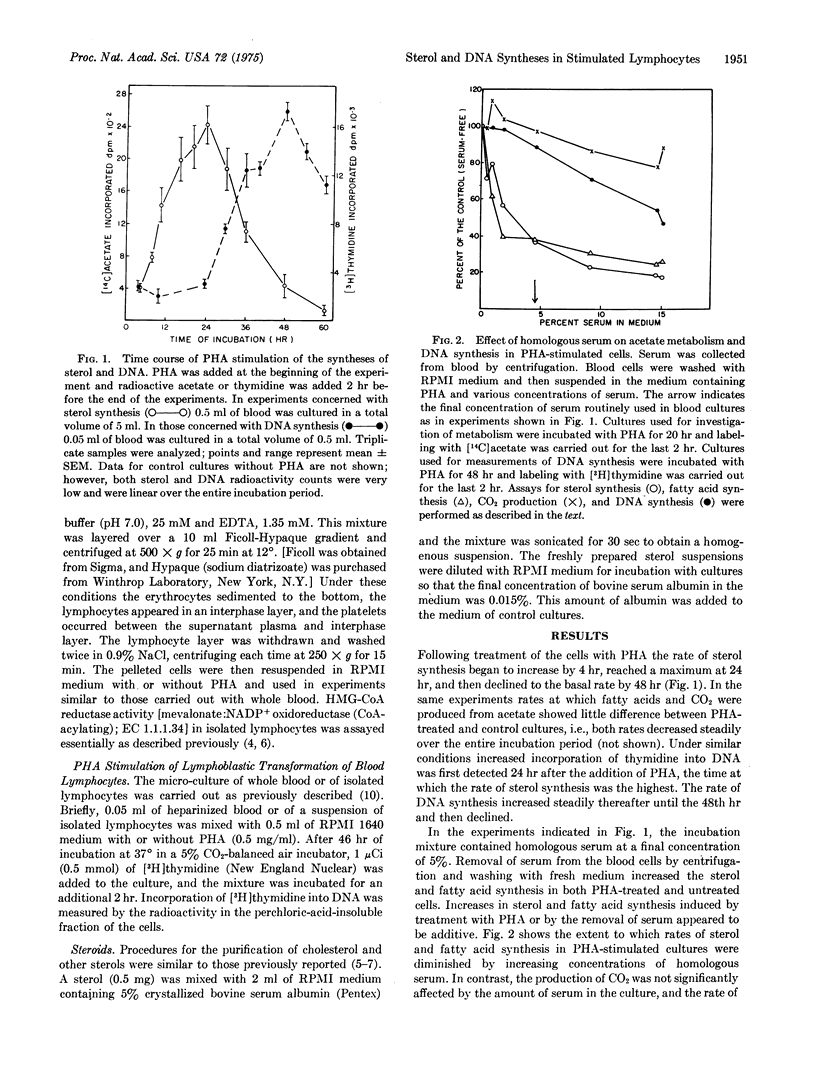
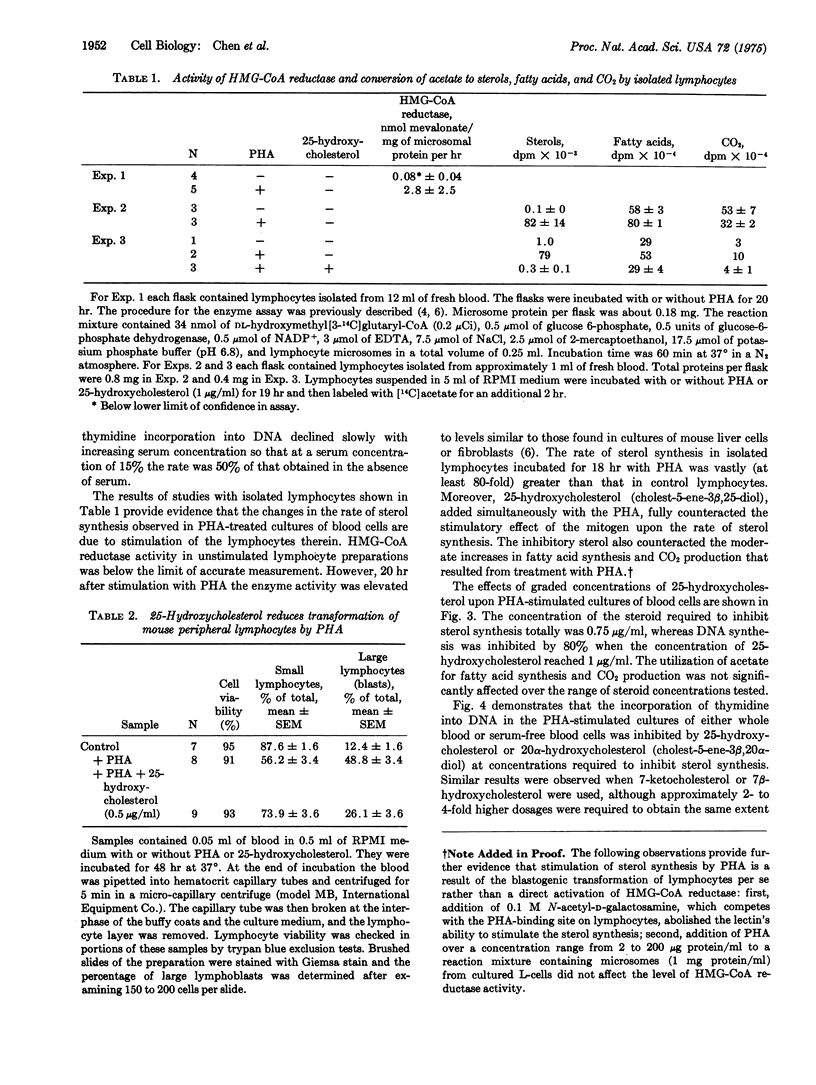
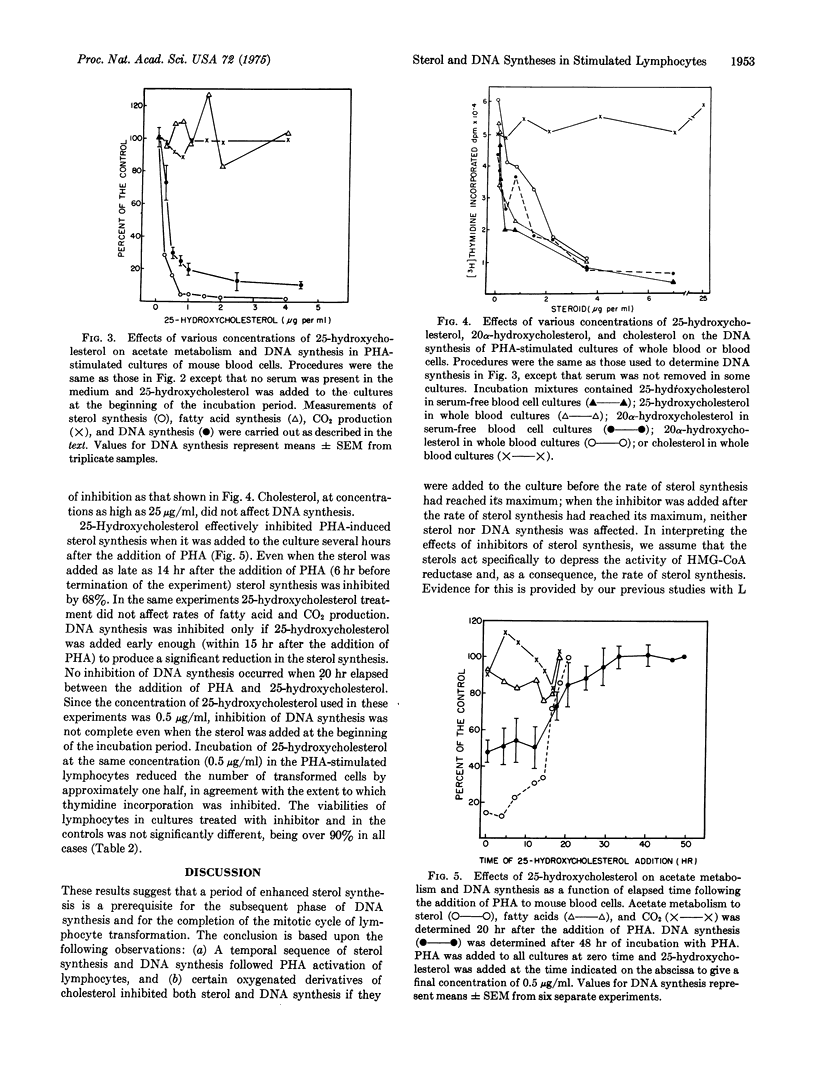
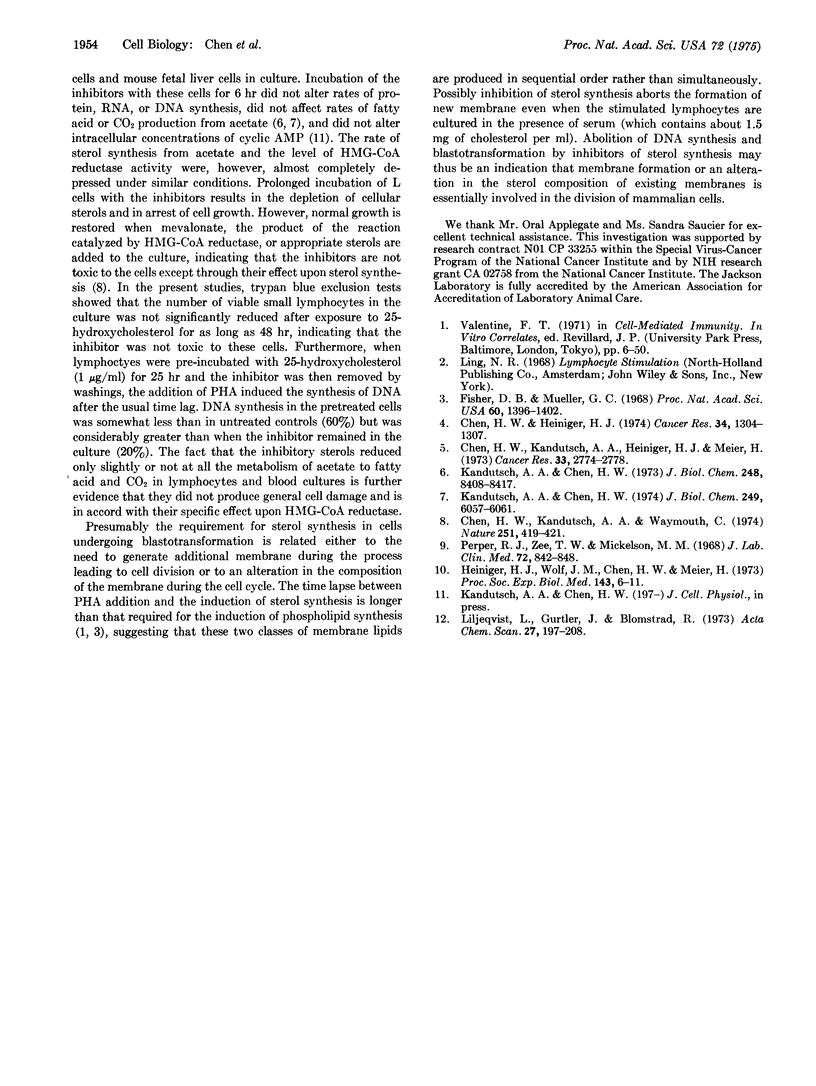
Selected References
These references are in PubMed. This may not be the complete list of references from this article.
- Chen H. W., Heiniger H. J. Stimulation of sterol synthesis in peripheral leukocytes of leukemic mice. Cancer Res. 1974 Jun;34(6):1304–1307. [PubMed] [Google Scholar]
- Chen H. W., Kandutsch A. A., Heiniger H. J., Meier H. Elevated sterol synthesis in lymphocytic leukemia cells from two inbred strains of mice. Cancer Res. 1973 Nov;33(11):2774–2778. [PubMed] [Google Scholar]
- Chen H. W., Kandutsch A. A., Waymouth C. Inhibition of cell growth by oxygenated derivatives of cholesterol. Nature. 1974 Oct 4;251(5474):419–421. doi: 10.1038/251419a0. [DOI] [PubMed] [Google Scholar]
- Fisher D. B., Mueller G. C. An early alteration in the phospholipid metabolism of lymphocytes by phytohemagglutinin. Proc Natl Acad Sci U S A. 1968 Aug;60(4):1396–1402. doi: 10.1073/pnas.60.4.1396. [DOI] [PMC free article] [PubMed] [Google Scholar]
- Heiniger H. J., Wolf J. M., Chen H. W., Meier H. A micromethod for lymphoblastic transformation of mouse lymphocytes from peripheral blood. Proc Soc Exp Biol Med. 1973 May;143(1):6–11. doi: 10.3181/00379727-143-37242. [DOI] [PubMed] [Google Scholar]
- Kandutsch A. A., Chen H. W. Inhibition of sterol synthesis in cultured mouse cells by 7alpha-hydroxycholesterol, 7beta-hydroxycholesterol, and 7-ketocholesterol. J Biol Chem. 1973 Dec 25;248(24):8408–8417. [PubMed] [Google Scholar]
- Kandutsch A. A., Chen H. W. Inhibition of sterol synthesis in cultured mouse cells by cholesterol derivatives oxygenated in the side chain. J Biol Chem. 1974 Oct 10;249(19):6057–6061. [PubMed] [Google Scholar]
- Liljeqvist L., Gürtler J., Blomstrand R. Sterol and phospholipid biosynthesis in phytohemagglutinin stimulated human lymphocytes. Acta Chem Scand. 1973;27(1):197–208. doi: 10.3891/acta.chem.scand.27-0197. [DOI] [PubMed] [Google Scholar]
- Perper R. J., Zee T. W., Mickelson M. M. Purification of lymphocytes and platelets by gradient centrifugation. J Lab Clin Med. 1968 Nov;72(5):842–848. [PubMed] [Google Scholar]


